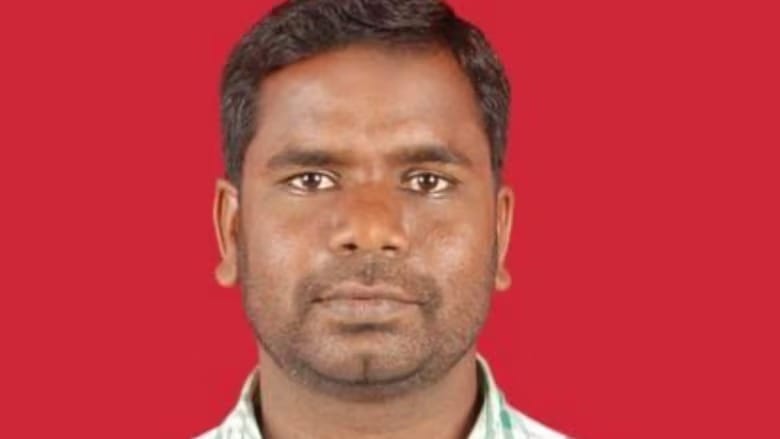Should serial killers serve multiple sentences consecutively? Winnipeg case ignites debate
4 life sentences for Jeremy Skibicki 'really means nothing' because they're concurrent: victim advocate

The horrific actions of Winnipeg serial killer Jeremy Skibicki, which led even the judge who sentenced him to life in prison to call the punishment insufficient, have sparked a debate about the waiting period for parole applications for individuals convicted of multiple murders.
Skibicki, 37, was officially sentenced on Wednesday after being found guilty in July of first-degree murder for the deaths of four Indigenous women in 2022. Although each conviction carries a mandatory life sentence with no possibility of parole for 25 years, a 2022 Supreme Court of Canada decision mandates that these sentences must be served concurrently rather than consecutively.
As a result, Skibicki will effectively serve a single life sentence, the same as if he had been convicted of killing just one person—a situation that concerns some.
Karen Wiebe, executive director of the Manitoba Organization for Victim Assistance, noted, "You may say that he has four sentences, but what does that really mean? It really means nothing, because he's serving them all at the same time." Wiebe's son, TJ Wiebe, was murdered in 2003.
Similar sentiments were expressed outside the courthouse after Skibicki's sentencing, where the families of victims and Assembly of Manitoba Chiefs Grand Chief Cathy Merrick expressed their preference for consecutive sentences. If consecutive sentences were an option, it would mean stacking the four 25-year parole ineligibility periods, potentially keeping Skibicki in prison without parole for up to 100 years.
Merrick said, "I think that we just might have to change the legal system when it comes to consecutive sentencing, because he's got to be accountable for the four deaths that he committed." She remains hopeful that even with the possibility of parole after 25 years, Skibicki will "stay in that cell for the rest of his life."
Manitoba Court of King's Bench Chief Justice Glenn Joyal, while agreeing with the Supreme Court’s 2022 ruling, suggested that the decision left open the possibility for future changes in the law regarding more severe sanctions for cases involving serial killers.
Legal expert Lisa Kerr pointed out that despite the chance for parole, Skibicki's likelihood of obtaining it is "virtually nonexistent" given the "horrific details" of his crimes. The parole board will consider the severity of the offenses and their impact on victims’ families and public safety.
Kerr also emphasized the importance of offering inmates some incentive to follow prison rules and maintain hope for the future. She noted, "It may be sort of an emotionally appealing thing to say 'we should not even have a hearing 25 years down the road,' but it would be a very dysfunctional change in terms of how the prison system operates."
The Supreme Court’s 2022 decision to eliminate consecutive life sentences—introduced in 2011 under Stephen Harper's Conservative government—was based on broader constitutional principles rather than the specific needs of individual cases. Kerr argued that reverting to the old law would be a betrayal of Canada’s commitment to constitutional rights, human dignity, and rehabilitation.

However, another legal expert believes that the decision places the responsibility on Parliament to consider changes to the law, including the potential use of the notwithstanding clause in the Charter of Rights and Freedoms. Brandon Trask, an assistant law professor at the University of Manitoba, argued that while the Supreme Court's decision focused on the dignity of offenders, the use of the notwithstanding clause could be justified for particularly egregious cases.
Trask expressed reservations about frequent use of the notwithstanding clause but suggested that it could be appropriate for extreme cases like Skibicki's. Despite this, any such change would not affect Skibicki’s current sentence.
Debate about using the notwithstanding clause to override the Supreme Court’s decision has been ongoing, with Conservative Leader Pierre Poilievre and Manitoba Progressive Conservative MLA Kelvin Goertzen both expressing support for reinstating consecutive sentences.
Premier Wab Kinew stated that Skibicki "should never be free again," while also asserting that any future parole hearings should consider the impact of his crimes.
Victim advocate Karen Wiebe highlighted the distressing nature of parole hearings for families, noting that they are often forced to relive their trauma.
A spokesperson for federal Justice Minister Arif Virani mentioned that the previous attorney general had defended the ability to impose longer periods of parole ineligibility, but the Supreme Court's unanimous decision rejected that position.
Skibicki was convicted of the murders of Morgan Harris, Marcedes Myran, Rebecca Contois, and a still unidentified woman referred to as Mashkode Bizhiki'ikwe, or Buffalo Woman. All four women were killed in Winnipeg between mid-March and May 2022, when Skibicki was arrested.
Harris, 39, and Myran, 26, were members of Long Plain First Nation. Contois, 24, was from O-Chi-Chak-Ko-Sipi First Nation (Crane River). Mashkode Bizhiki'ikwe was believed to be in her 20s and also Indigenous.
Skibicki confessed to the murders during police interrogation, claiming the killings were racially motivated. His defense argued during the trial that he was not criminally responsible due to a mental disorder, but Judge Joyal found that the murders were deliberate and planned.
Partial remains of Contois were discovered in garbage bins and at the Brady Road landfill. Searches for Harris’s and Myran’s remains are expected to begin at the Prairie Green landfill, while the location of Mashkode Bizhiki'ikwe’s remains remains unknown.





